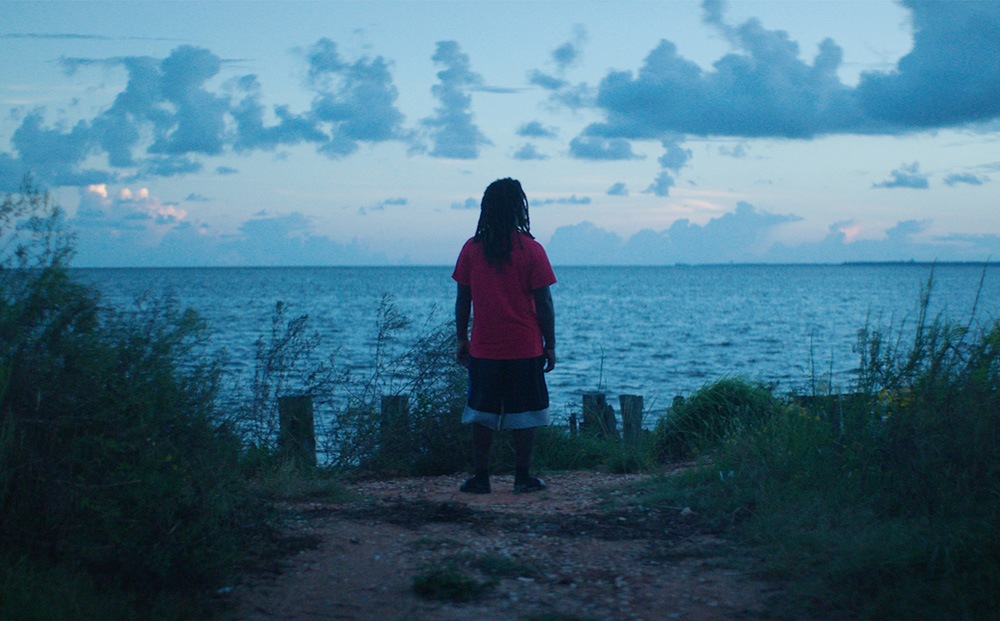At one point in “Descendant,” Emmett Lewis sits down to read a passage from “Barracoon,” a novella based on the testimony recorded by Zora Neale Hurston in 1927 of Cudjoe Lewis, the last survivor of the Clotilda, the last slave ship that is thought to have docked on American shores. Director Margaret Brown has the young man describing his relative’s experience on the ship from generations before in the Oakleigh House Museum in Mobile, Alabama, perfectly preserved knickknacks with more than a few articles from the Confederacy and by this point in her exceptional documentary, you’re aware that “Barracoon” has only been in print since 2018 and all other traces of the Clotilda are considered rumors at best when remnants of the ship have never been found and only the descendants have passed the story around to each other to remain conscious of it within the community. It’s meant that Emmett has spent far too much time in a graveyard for anyone his age, making trips with his father from as early as he can remember to tell him the story, and the scene in the Oakleigh House is bound to send shivers down your spine when it’s made clear whose history has had the benefit of preservation and whose hasn’t.
There’s hope that will all change with the present-day events depicted in “Descendant,” but simply putting this history on the record is meaningful enough, drawing on VHS tapes of oral histories collected by folklorist Kern Jackson and interviews with the current generation of descendants living in Africatown, Alabama where the mystery still persists around the ship when Brown arrives in 2018. A new effort to scour the bay for any remains of the Clotilda has gained momentum, and although most in the community have a pretty vivid idea of what occurred to their kin — a truly rancid endeavor in which Timothy Meaher, a local landowner made a bet that he could still bring in a slave ship on the eve of the Civil War in 1860, with Captain William Foster transporting the 110 Africans to Alabama — nearly every one Brown talks to describes the nagging feeling they’ve lived with all their lives when it’s never been confirmed as fact.
As Brown learns, it isn’t just the lack of an official acknowledgement that has made the past so present for those in Africatown, but its myriad implications, from more abstract injustices such as a lack of legitimacy that’s felt by those who have been deprived of a history they can point to the lack of accountability for Meaher, whose family continues to be a major landholder in the area under the name Chippewa Lakes and has leased out property in the past to environmentally unsound companies such as paper mills and chemical factories that have endangered the community.
Like her previous films “The Order of Myths” and “The Great Invisible” that have explored these complicated issues before, Brown exhibits considerable patience and an attentiveness to her subjects that allow their voices to resonate in a deeper way than most, accentuated quite strikingly by the floating camerawork of her cinematographers Zac Manuel and Justin Zweifach that allows one to settle into every scene and really listen. The rewards of this just keep coming when each detail of the Clotilda and its cover-up is more staggering than the next and the weight of the information is shifted off of those who have been burdened with keeping it alive out of fear it could disappear entirely to the far greater number than need to hear about it in the centuries to come. In “Descendant,” it isn’t only the power of the story that’s overwhelming, but getting to see the effect it has on those who can finally tell it with confidence.
“Descendant” will be available to screen virtually at the Sundance Film Festival on January 24th for a 24-hour window beginning at 8 am MT.




